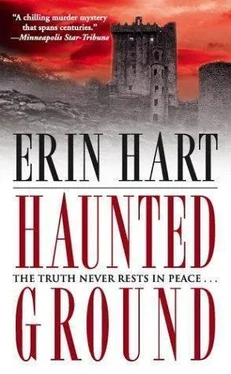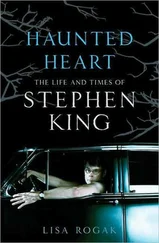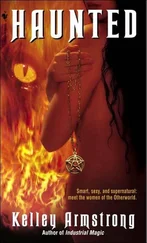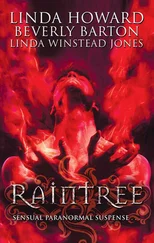“I come here often,” he said. “It helps to have something to do.” He spoke simply, without self-pity. Osborne looked away, and Cormac made no attempt to reply. What could one say to a man preparing to live the rest of his life in uncertainty? Instead, he sat on the cot, glass in hand, and let the silence rest between them for a moment. It was curious that no matter how objectively he might consider the possible role Osborne played in his wife’s disappearance, all suspicion immediately vanished when he was in a room with the man. Cormac supposed he’d never make a good policeman for just that reason. When he finally did speak, it was to change the subject, for which Osborne was apparently grateful.
“I’ve been admiring your maps,” he said. “They look authentic.”
Osborne nodded. “That one”—he gestured to the frame hanging above the fireplace—“was the first comprehensive map of this area, drawn up by Hugo Osborne, the chap in the portrait I showed you upstairs. I think I mentioned he was one of William Petty’s men. The story is that he surveyed everything himself.” Cormac stood to peruse the map. According to this drawing, the estate consisted of a large area around the house, and various other small pockets and parcels of land scattered throughout the parish. There was a crude, three-dimensional view of Bracklyn House itself, and the nearby priory, the tower, heavily wooded areas, small clusters of houses, the lake and surrounding bogland, and in the lower right corner, a computation of all the estate’s arable lands.
“No mention of Drumcleggan here at all,” Cormac said.
“That’s what I first noticed about it as well. Says something about the attitude of the conqueror, doesn’t it? Fortunately, the visual detail is spot-on. When you think about it, our vocations aren’t all that different. When you excavate a site, you’re cutting down through the actual physical evidence of human activity that took place there; in studying place-names, I dig through layers as well, but they’re usually layers of maps and papers, all jumbled up with Irish names, English, Danish, Norman names, some altered beyond all recognition. Bad translations are my greatest challenge.”
“Are all those tapes?” Cormac asked, indicating the rows of white reel-to-reel tape boxes he’d just noticed lining the shelves behind the door.
Osborne was warming to his subject now. “Yes, my own project. Interviews with old people from the area, on the subject of place-names. It’s amazing what some of them can recall, from years and years ago, if only one thinks to ask. And how place-names in particular have a tendency to stick where they’ve been put down. I’m afraid I’ve let the project slide recently, but there’s a whole lot of valuable documentation there; I’m thinking I should resurrect it one day. You should see some of the blunders being perpetuated on the maps and road signs. If you’re going to return to the old names, isn’t it important that they be correct, and not just quasi-Gaelic versions of bad translations? At some point it does get down to academic hair-splitting, I grant you, but there is principle involved.” He gave a wry smile. “Regretting now you ever got me started?”
“Ah—actually, I did mean to ask how you became interested in bookbinding,” Cormac said, consciously playing into Hugh Osborne’s self-deprecation. Osborne drained his glass and rose briefly to pour them each another tott. Cormac was relieved that his remark had been received in the spirit in which it was intended.
“At university, actually. I read history as an undergraduate, and was amazed that they’d actually let us handle all those rare papers and manuscripts. The conservator at the library used to let me lend a hand now and again. I set up this workshop a few years ago. Bookbinding is only a sideline, really; maps and documents are my speciality. I do a bit of work for libraries and collectors, partly because it brings in a few shillings, but mostly because I enjoy it. We’ve a whole lot of old family papers about the place, deeds and records of births, letters from a few historical figures that I think are worth preserving for the stories they tell.” His voice softened slightly, and Cormac felt he was about to receive a confidence that might not have been shared, if it weren’t for the hour and their mutual malady. “All things I’d hoped to pass along to my son, as they’d been passed to me.” Osborne raised his face slightly, and the two men regarded one another for a moment.
Cormac got the sense that he could change the subject a hundred times, but the conversation would turn back to this place time and time again. He regretted harboring suspicion against this man. He pictured Hugh Osborne as a sea captain lashed to his wheel, staying his course through gales, high seas, and necromancers’ spells. After a moment, Osborne returned to his work, and Cormac’s eyes came to rest on a large pair of black wellingtons that stood in the shadow of the workbench. Was it his imagination, or perhaps a trick of the light, he wondered, or was their dark surface glistening with wetness?
Book Three
BEASTS AND BIRDS OF PREY
…great multitude of poor swarming in all parts of the nation… frequently some are found feeding on carrion and weeds and some starved in the highways, and many times poor children who have lost their parents, or who have been deserted by them, are found exposed to, and some of them fed upon, by ravening wolves and other beasts and birds of prey.
—The Commissioners’ Report on the State of Ireland, May 12, 1653
Distances could be deceiving at night, but looking out from the kitchen window in the light of morning, Cormac could see the edge of the lawn against which the light had seemed to travel last night—or rather, earlier this morning—and he felt he’d judged the path of the light fairly accurately. A small flock of sheep grazed near the lakeshore, some standing, some lying as though their spindly legs had been cut out from under them. He looked farther, past the perimeter of the lawn, to the Bracklyn woods. Rising up out of the branches only a few hundred yards from the house was O’Flaherty’s Tower, its ivied walls a shade of green subtly different from that of the surrounding leaves. From this angle he could see a few wooden roof beams still intact, their slate covering long since robbed to patch holes elsewhere, probably on Bracklyn House itself.
After he’d had his breakfast, Cormac headed to the jeep parked in the drive and deposited the books and tools he needed for the day’s work. But the furtive movement of the torch beam—not to mention Hugh Osborne’s dew-covered wellingtons—had pricked his curiosity. Instead of climbing in and driving off, he rounded the corner of the house, past the stable that now served as shed and garage, and followed the tumble-down bawn wall that formed the first defensive barrier around Bracklyn House. He tried to imagine living in such a circumspect state of mind, as generations of landowners in these parts must have done, ever watchful for some enemy to come and batter down their doors. Not all that different, he supposed, from the Dublin pensioners shut up in their tiny flats, windows barred and doors bolted with sixteen locks.
He followed the wall, now up to his ankles in thick grass. This patch was one of several to which the sheep had yet to turn their attention. About thirty yards from the lake, the wall came to a crumbling end, no doubt toppled by time and the thick, ropelike vines that snaked over it from the wild wood. He hadn’t been careful to make sure no one saw him, but he could just claim that this exploration was somehow related to his business at the priory.
Читать дальше











